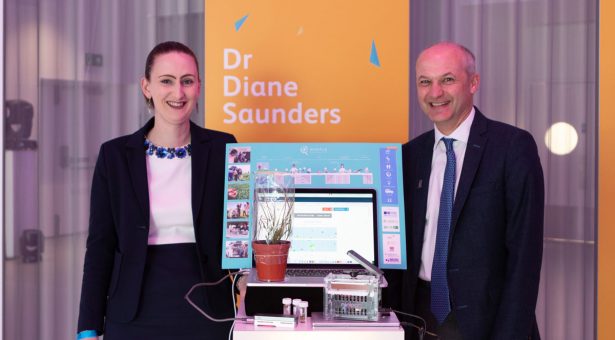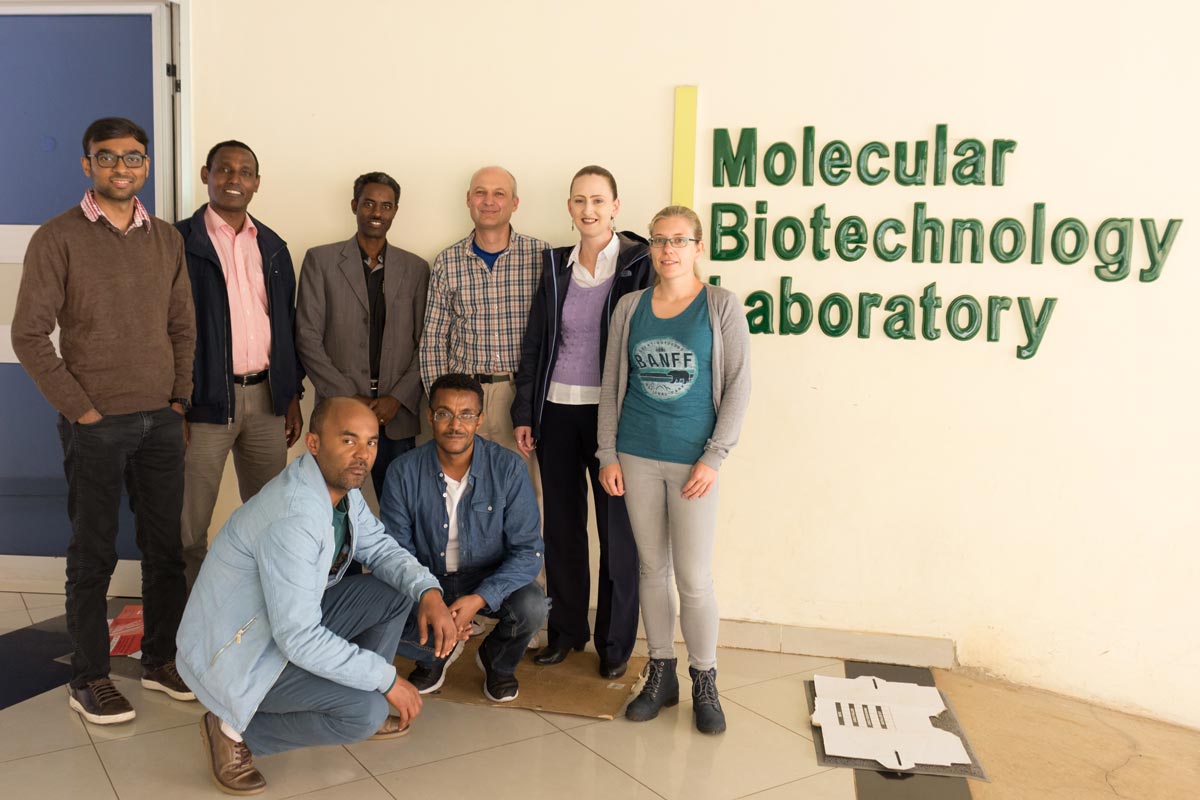Innovator of the Year award recognises impact of international collaboration in wheat disease diagnostics

Dr Diane Saunders has been named the 2019 BBSRC Innovator of the Year for international impact following her group’s work on developing genomics-based approaches for rapid point-of-care fungal disease diagnostics.
Their latest advancement known as MARPLE (Mobile and Real-time PLant disEase) Diagnostics, was the result of a collaboration with Dr. Dave Hodson of CIMMYT and Dr. Tadessa Daba the Ethiopian Institute of Agricultural Research.
MARPLE diagnostics provides the means for the first time to identify wheat rust strains directly at field sites within just two days. Since its first trials in late 2018, the suitcase-sized lab is already being used by partners on the ground in Ethiopia.
Dr Saunders said, ‘I’m delighted to receive this award on behalf of the incredible team and international community we have supporting this project. I hope this continues to strengthen our work with CIMMYT and EIAR and ultimately improve crop protection for farmers”
The award recognises the impact this technology can have in informing crop protection. Ethiopia is the largest wheat producer in sub-Saharan African and the majority of this harvest is produced by smallholder farmers.
Each year, rust diseases lead to loss of harvest that can be prevented by targeted control measures. The faster detection MARPLE Diagnostics provides, allows the vital time needed to target disease control strategies that protect farmers harvests.
“The earlier you can detect these strains, the faster you can respond and prevent losses,” said Dave Hodson, Rust Pathologist at CIMMYT. “This award is a fantastic achievement and marks the importance of this previously missing piece of the puzzle.”
Director of the John Innes Centre Professor Dale Sanders said, “I am delighted that Diane’s innovations have been recognised by this prestigious award. Her work marks a revolution in plant disease diagnostics which will have far-reaching implications for how plant health threats are evaluated in a wide range of agricultural systems.”
Dr Saunders plans to use the award to train more Ethiopian researchers in her diagnostic platform at field stations across the wheat growing areas of the country.
“This is real national and international collaboration that ultimately helps the resource poor farmer” said Dr Badada Girma, Durable Rust Resistance in Wheat researcher, EIAR.
Development of the MARPLE diagnostic kit was funded by the Biotechnology and Biological Sciences Research Council (BBSRC) and CGIAR Big Data Platform Inspire Challenge. Continued support is also provided by the BBSRC Excellence with Impact Award to JIC and the Delivering Genetic Gain in Wheat Project led by Cornell University International Programs that is funded by the UK Department for International Development (DFID) and the Bill & Melinda & Gates Foundation.
A separate team of early career researchers from the Norwich Research Park also made it to the finals of the awards for an open source project that has made the technique of speed breeding more accessible to the research community. The team from Quadram Institute Bioscience (QIB), the Earlham Institute (EI), the John Innes Centre (JIC) and the University of Oxford have taken speed breeding to the next level by developing a scaled-down version of the technology.
Team members Oscar Gonzalez-Navarro (QIB), Ricardo H. Ramirez-Gonzalez (JIC), Sreya Ghosh (JIC), Luis Yanes (EI) and Marcela Mendoza-Suarez (University of Oxford) are all postdoctoral research scientists or PhD students.


